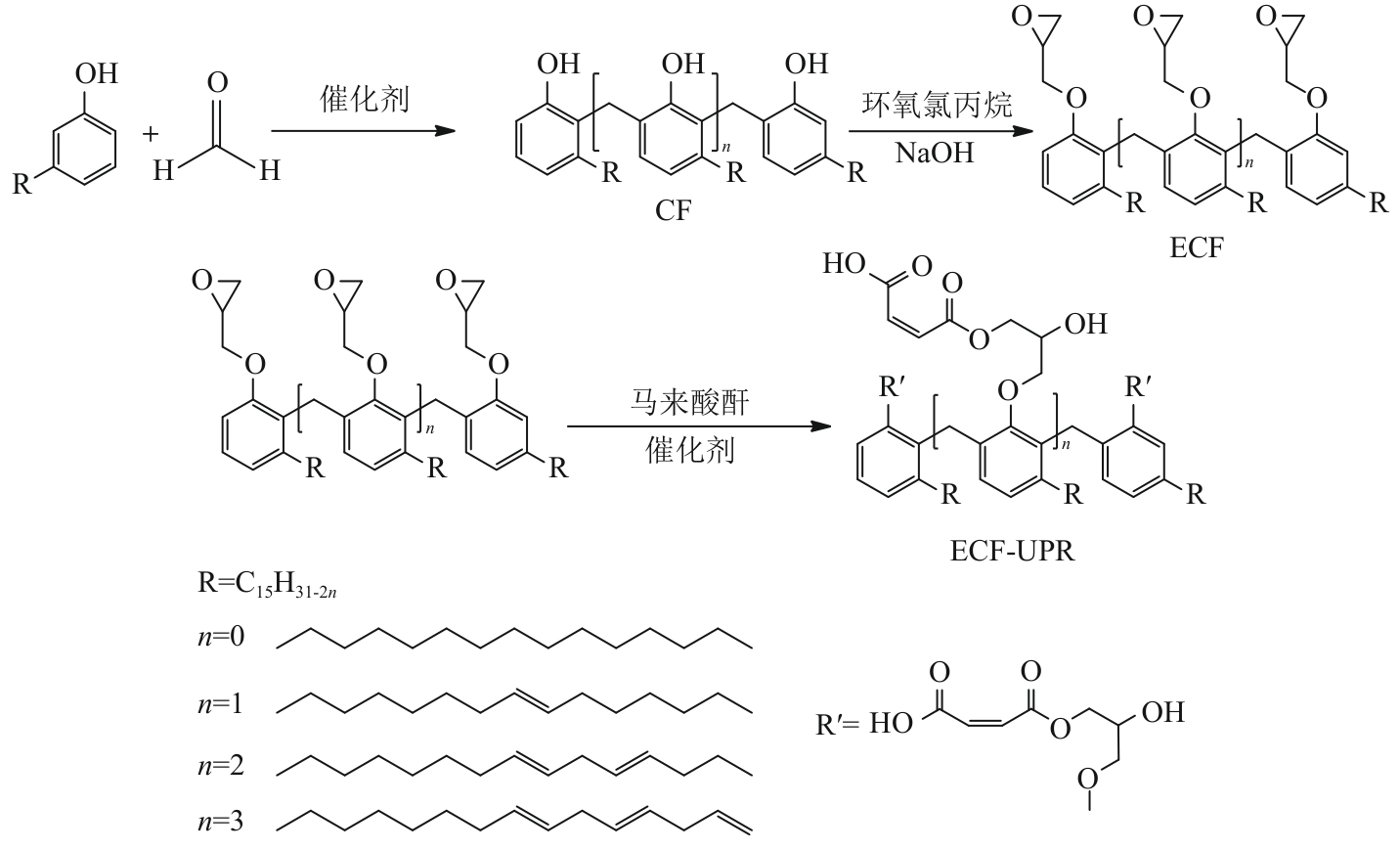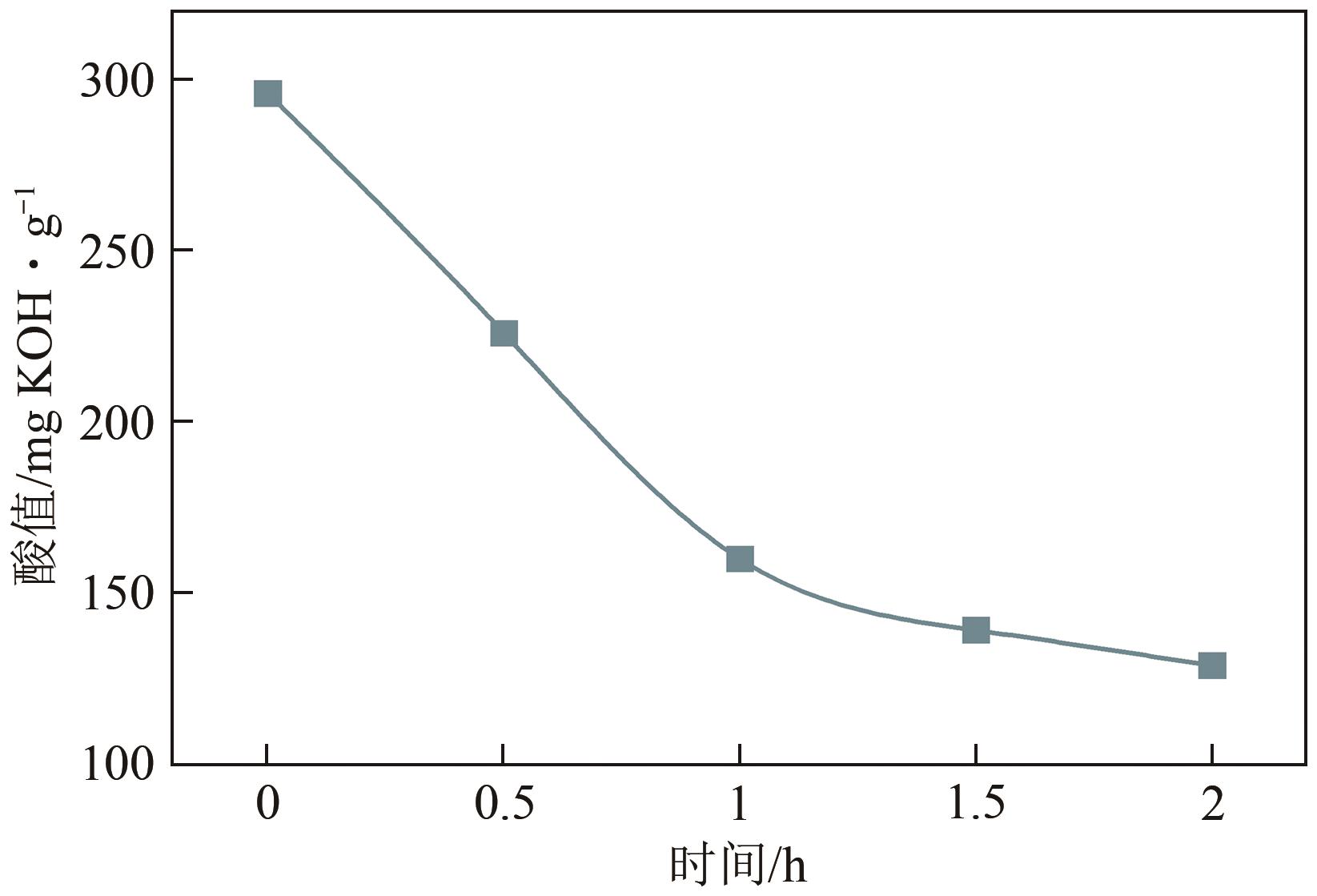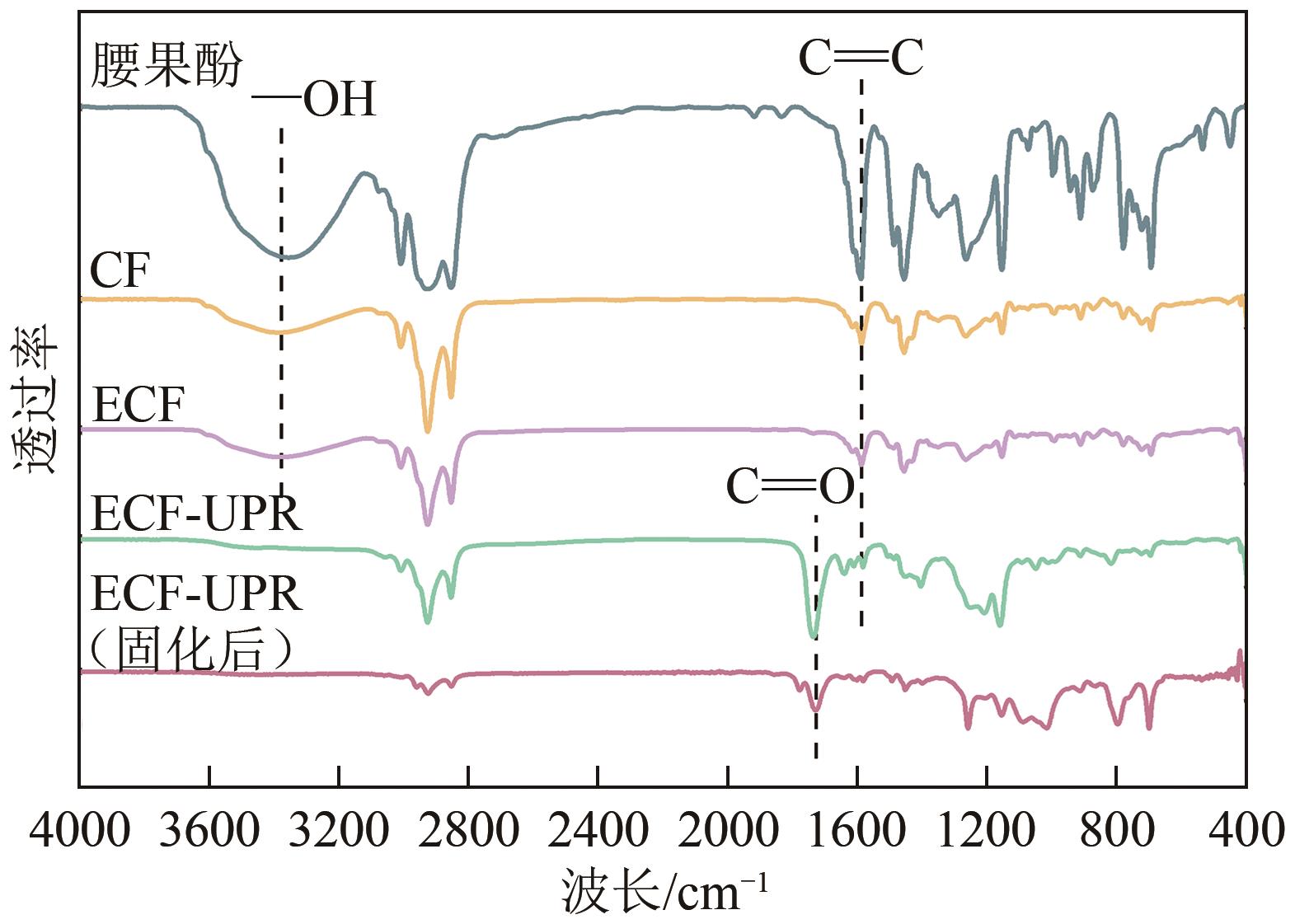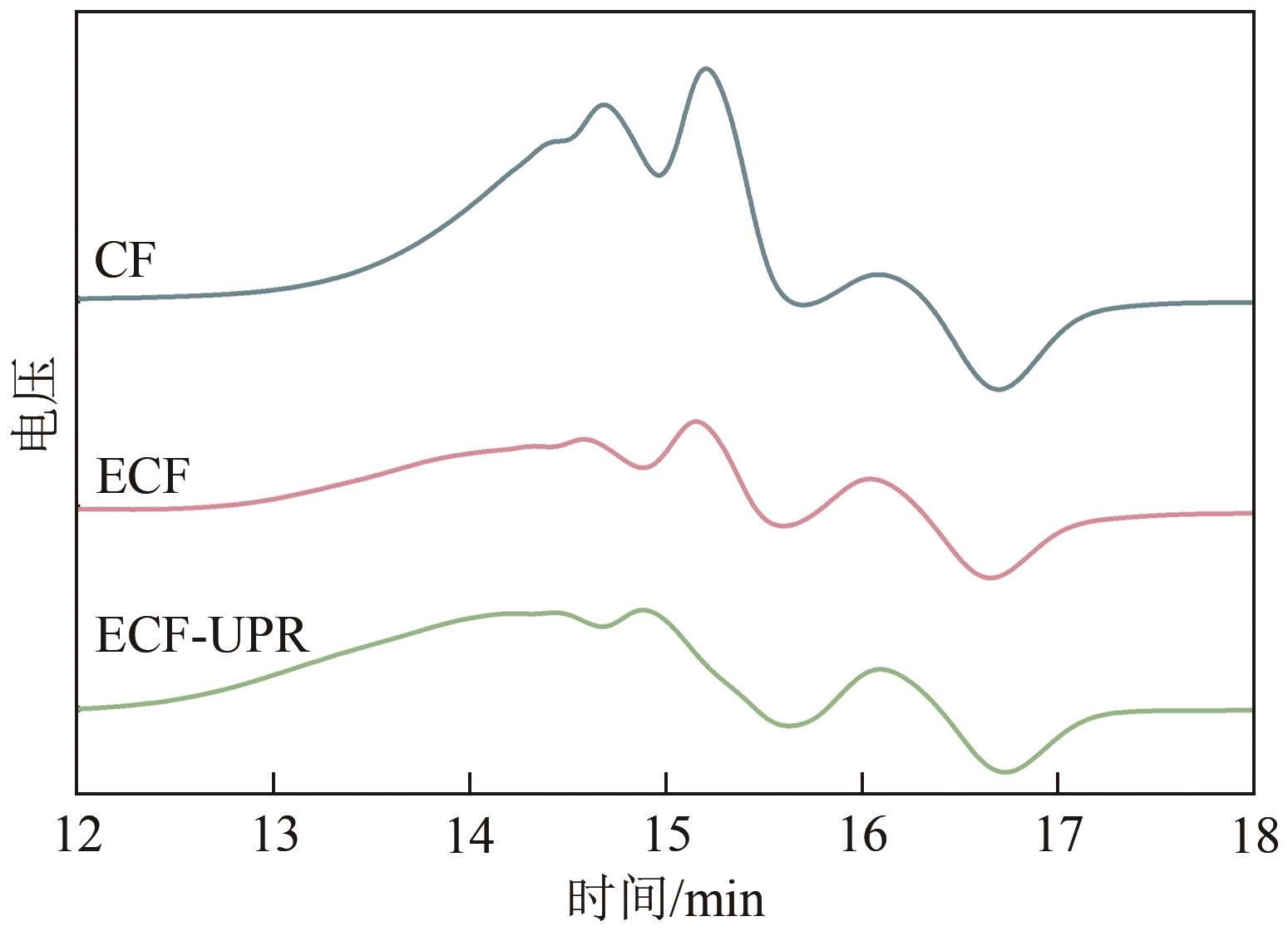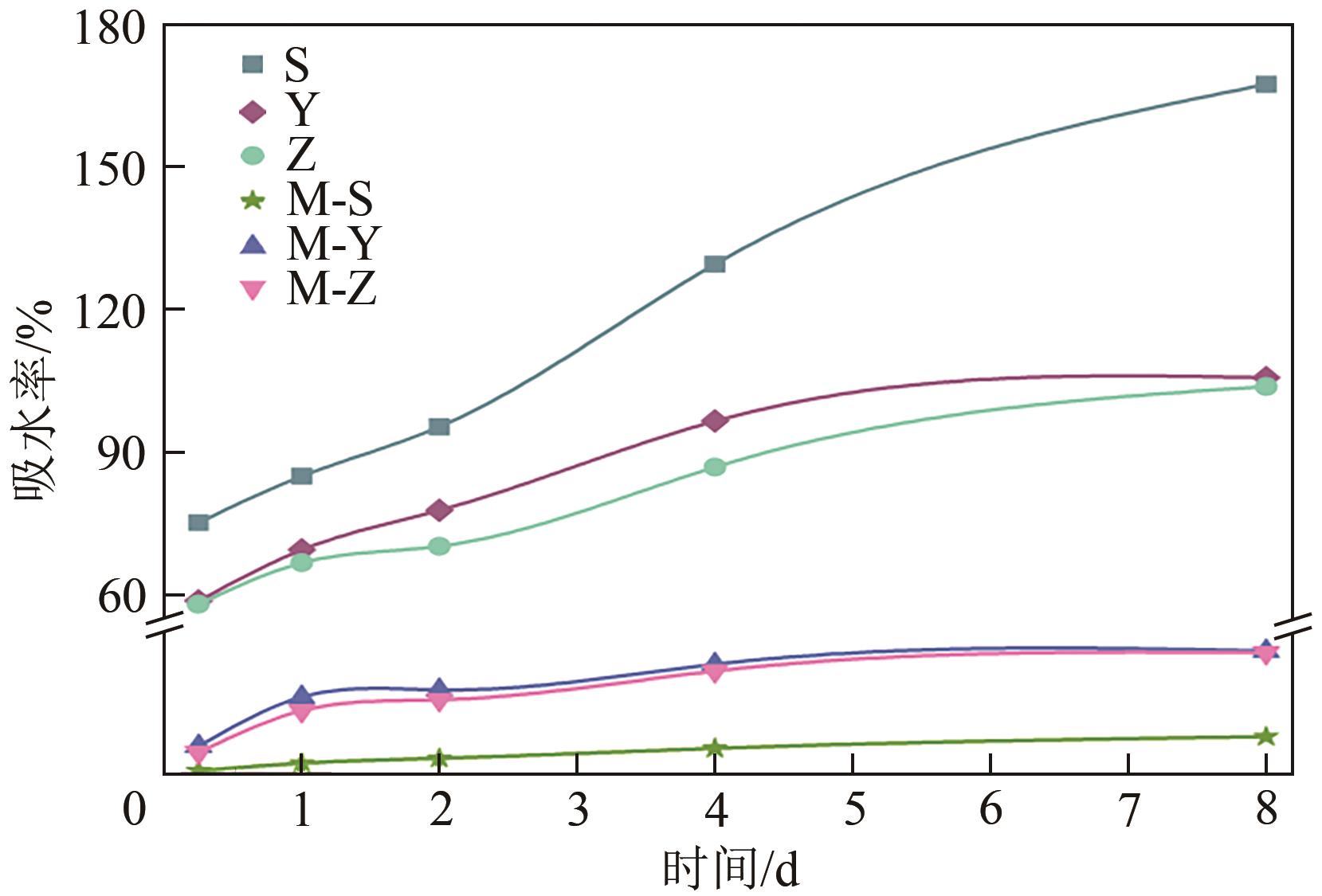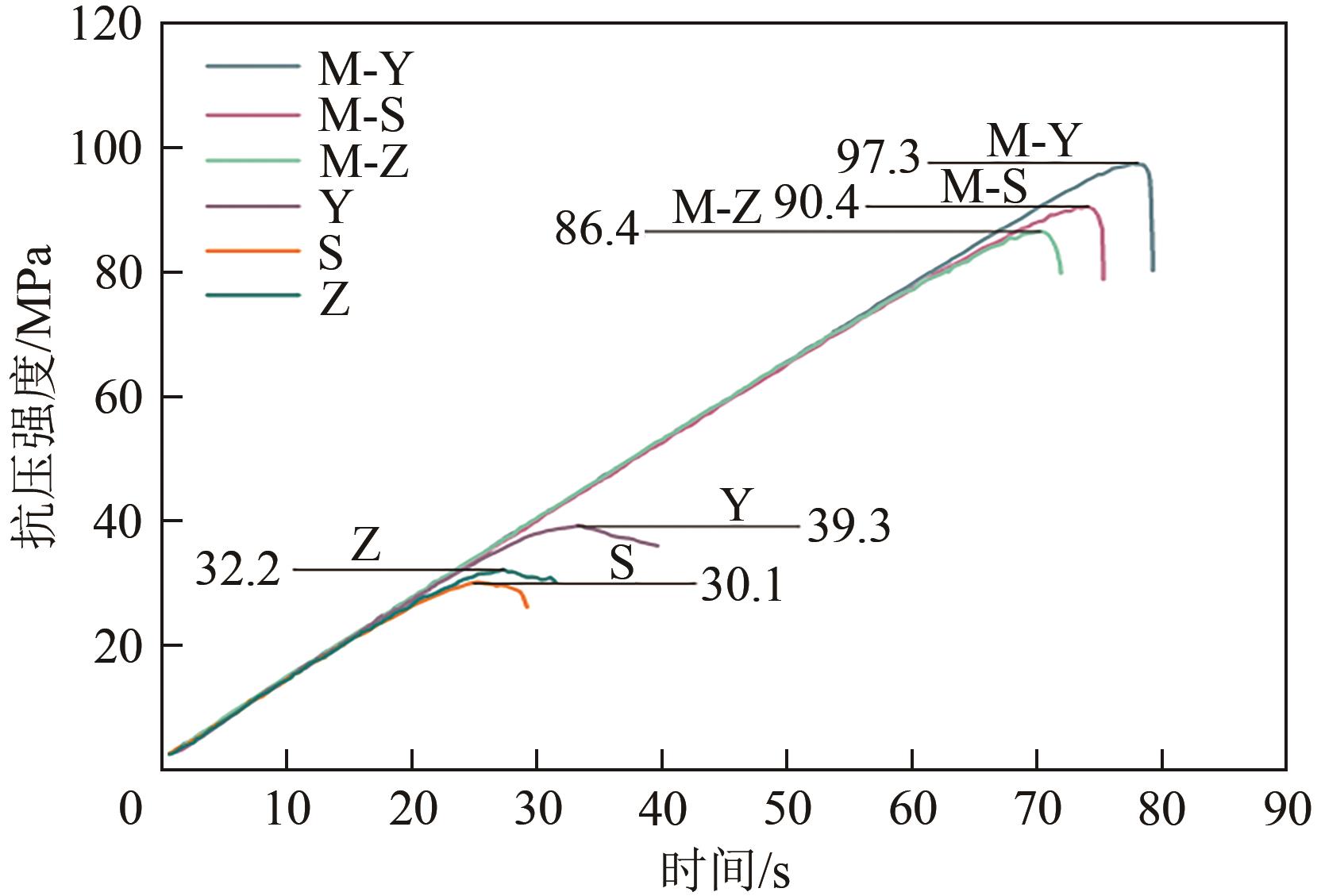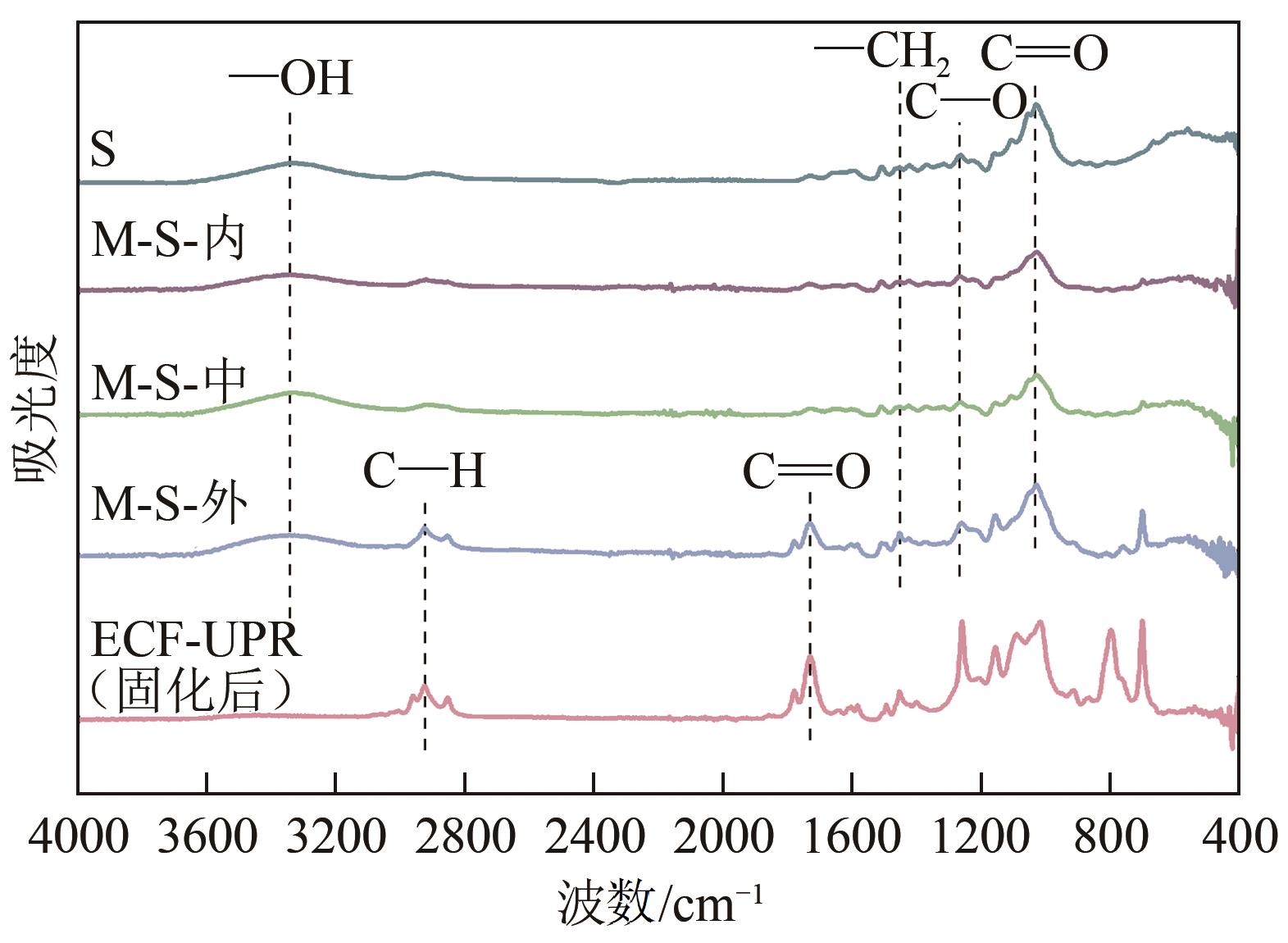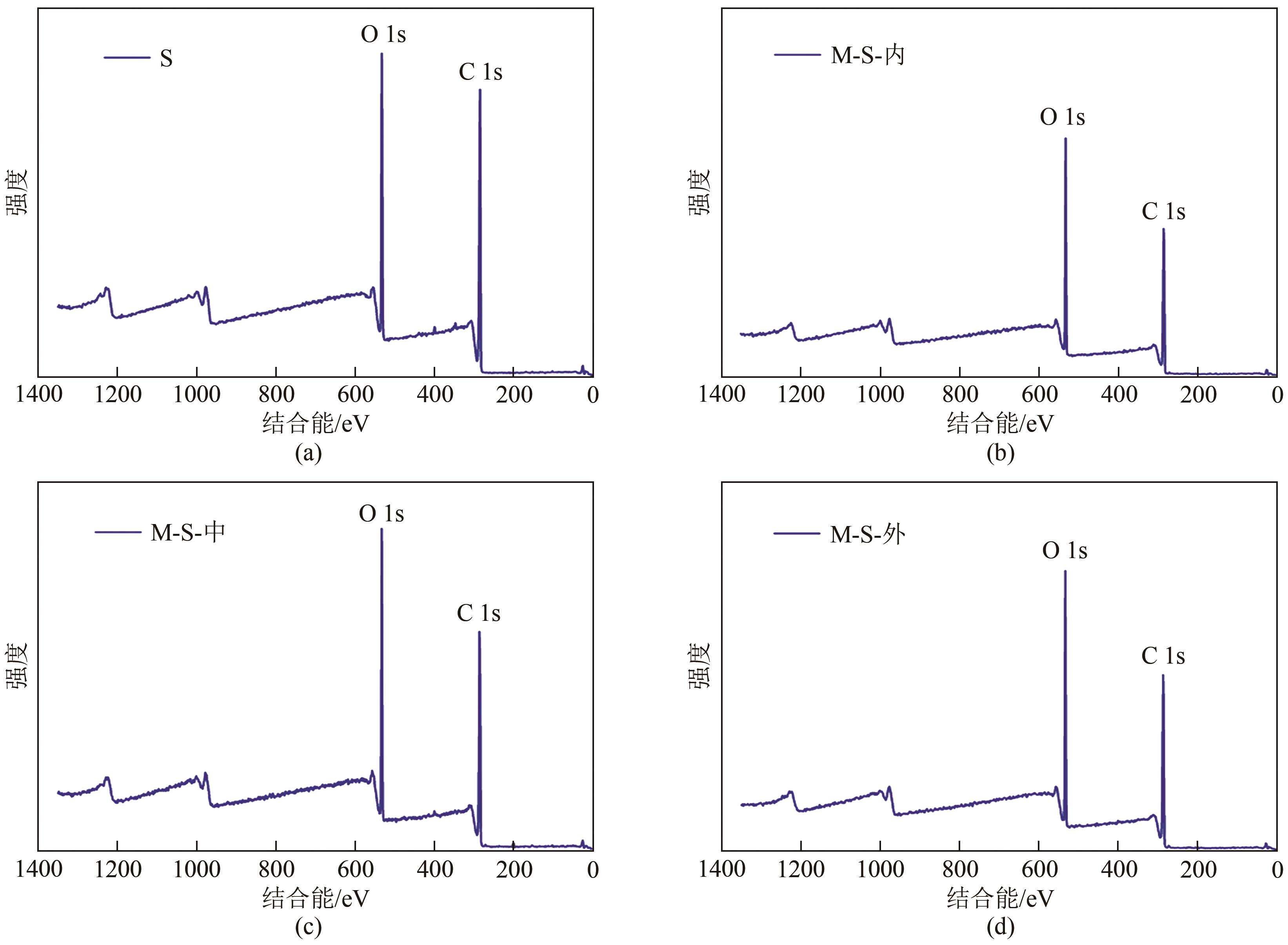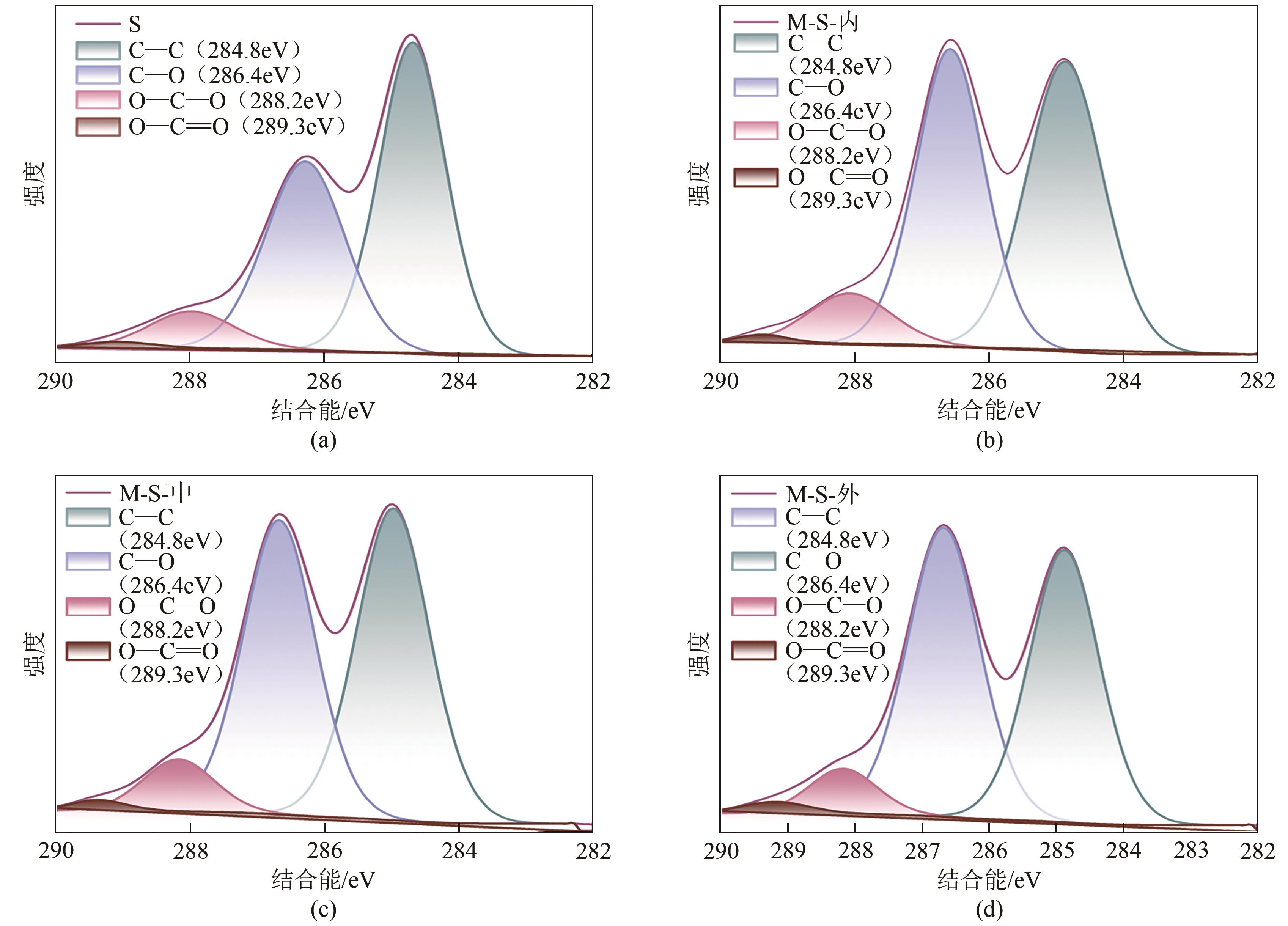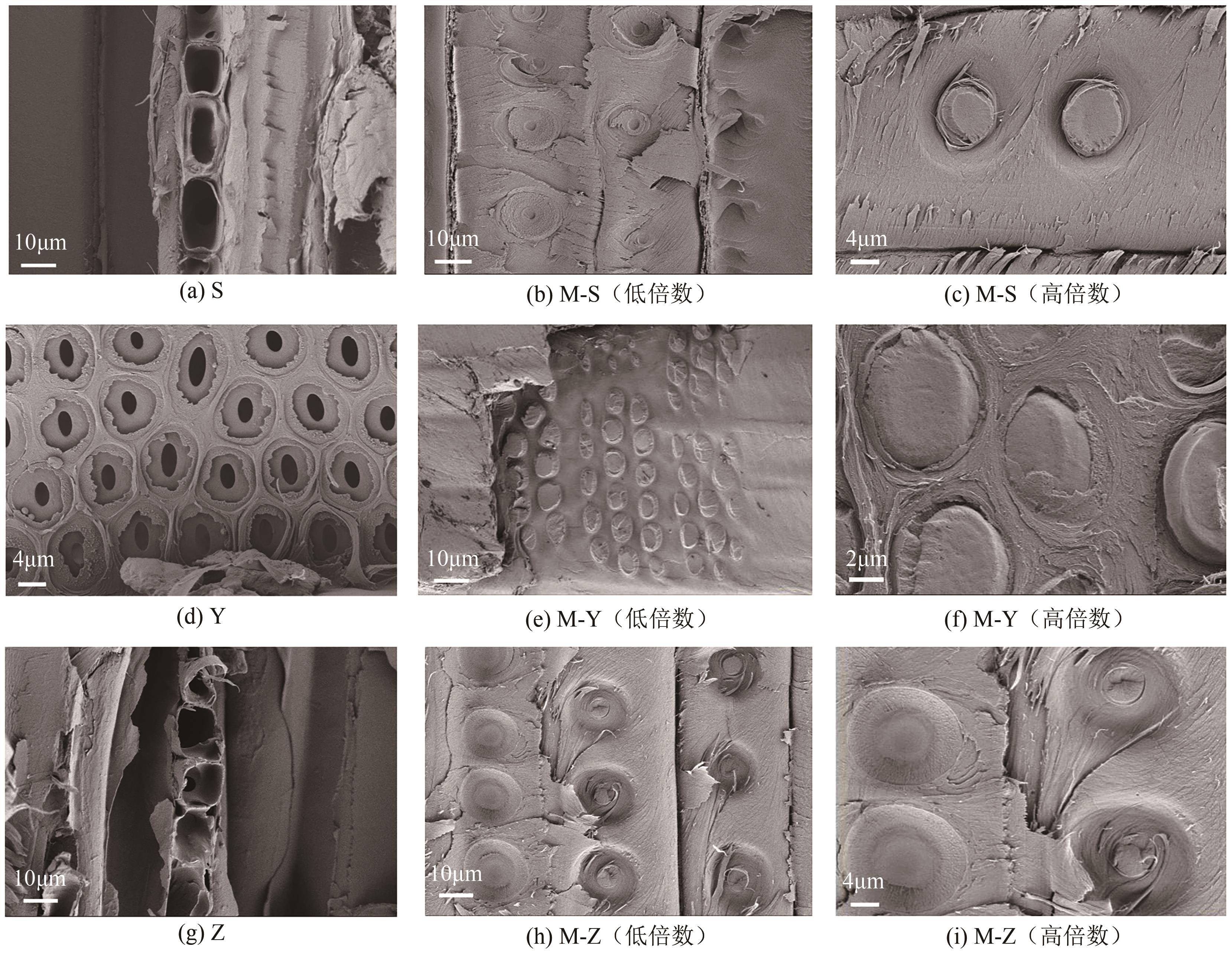Chemical Industry and Engineering Progress ›› 2024, Vol. 43 ›› Issue (10): 5653-5662.DOI: 10.16085/j.issn.1000-6613.2023-1581
• Materials science and technology • Previous Articles
Application of cardanol-based unsaturated resin in wood enhanced modification
XIANG Wenli( ), TANG Hui(
), TANG Hui( ), XU Tianle, ZHANG Baoyin
), XU Tianle, ZHANG Baoyin
- Faculty of Chemical Engineering, Kunming University of Science and Technology, Kunming 650000, Yunnan, China
-
Received:2023-09-07Revised:2023-10-24Online:2024-10-29Published:2024-10-15 -
Contact:TANG Hui
腰果酚基不饱和树脂在木材增强改性中的应用
- 昆明理工大学化学工程学院,云南 昆明 650000
-
通讯作者:唐辉 -
作者简介:向文丽(1999—),女,硕士研究生,研究方向为高分子材料。E-mail:1411043587@qq.com。 -
基金资助:校企合作科技基金(kkk0201705038)
CLC Number:
Cite this article
XIANG Wenli, TANG Hui, XU Tianle, ZHANG Baoyin. Application of cardanol-based unsaturated resin in wood enhanced modification[J]. Chemical Industry and Engineering Progress, 2024, 43(10): 5653-5662.
向文丽, 唐辉, 许天乐, 张宝印. 腰果酚基不饱和树脂在木材增强改性中的应用[J]. 化工进展, 2024, 43(10): 5653-5662.
share this article
Add to citation manager EndNote|Ris|BibTeX
URL: https://hgjz.cip.com.cn/EN/10.16085/j.issn.1000-6613.2023-1581
| 试剂名称 | 纯度 | 厂商 |
|---|---|---|
| 腰果酚 | 工业纯 | 浙江万盛股份有限公司 |
| 甲醛 | 37% | 国药集团化学试剂有限公司 |
| 乙酸锌 | 99% | 天津市风船化学试剂科技有限公司 |
| 环氧氯丙烷(ECH) | 99.5% | 上海麦克林生化科技股份有限公司 |
| 氢氧化钠 | 96% | 上海麦克林生化科技股份有限公司 |
| 马来酸酐(MA) | 99% | 上海麦克林生化科技股份有限公司 |
| 对苯二酚 | 99% | 国药集团化学试剂有限公司 |
| 苯乙烯(St,代号S) | 99% | 上海麦克林生化科技股份有限公司 |
| 二乙烯基苯(DVB,代号D) | 80% | 阿拉丁试剂(上海)有限公司 |
| 过氧化苯甲酰(BPO,代号B) | 99% | 上海麦克林生化科技股份有限公司 |
| 乙酸乙酯 | 99% | 上海麦克林生化科技股份有限公司 |
| 试剂名称 | 纯度 | 厂商 |
|---|---|---|
| 腰果酚 | 工业纯 | 浙江万盛股份有限公司 |
| 甲醛 | 37% | 国药集团化学试剂有限公司 |
| 乙酸锌 | 99% | 天津市风船化学试剂科技有限公司 |
| 环氧氯丙烷(ECH) | 99.5% | 上海麦克林生化科技股份有限公司 |
| 氢氧化钠 | 96% | 上海麦克林生化科技股份有限公司 |
| 马来酸酐(MA) | 99% | 上海麦克林生化科技股份有限公司 |
| 对苯二酚 | 99% | 国药集团化学试剂有限公司 |
| 苯乙烯(St,代号S) | 99% | 上海麦克林生化科技股份有限公司 |
| 二乙烯基苯(DVB,代号D) | 80% | 阿拉丁试剂(上海)有限公司 |
| 过氧化苯甲酰(BPO,代号B) | 99% | 上海麦克林生化科技股份有限公司 |
| 乙酸乙酯 | 99% | 上海麦克林生化科技股份有限公司 |
| 仪器名称 | 型号 | 生产厂家 |
|---|---|---|
| 旋转黏度计 | NDJ-1 | 上海精密科学仪器有限公司 |
| 真空干燥箱 | DZF-6020 | 上海东麓仪器设备有限公司 |
| 压力试验机 | YAW-100D | 济南中路昌试验机制造有限公司 |
| 傅里叶红外光谱仪(FTIR) | Spectrum Two | 美国Perkin Elmer公司 |
| 凝胶色谱仪(GPC) | LC98IIRI | 北京温分分析仪器技术开发有限公司 |
| 热重分析仪(TGA) | TGA-50 | 日本岛津公司 |
| X射线光电子能谱(XPS) | Nexsa | 赛默飞世尔科技(中国)有限公司 |
| 扫描电子显微镜(SEM) | GeminiSEM360 | 德国卡尔·蔡司股份公司 |
| 仪器名称 | 型号 | 生产厂家 |
|---|---|---|
| 旋转黏度计 | NDJ-1 | 上海精密科学仪器有限公司 |
| 真空干燥箱 | DZF-6020 | 上海东麓仪器设备有限公司 |
| 压力试验机 | YAW-100D | 济南中路昌试验机制造有限公司 |
| 傅里叶红外光谱仪(FTIR) | Spectrum Two | 美国Perkin Elmer公司 |
| 凝胶色谱仪(GPC) | LC98IIRI | 北京温分分析仪器技术开发有限公司 |
| 热重分析仪(TGA) | TGA-50 | 日本岛津公司 |
| X射线光电子能谱(XPS) | Nexsa | 赛默飞世尔科技(中国)有限公司 |
| 扫描电子显微镜(SEM) | GeminiSEM360 | 德国卡尔·蔡司股份公司 |
| 木材试样代号 | 原木密度 /g·cm-3 | 浸渍增重率 /% | 改性木材密度 /g·cm-3 | 剖面密度/g·cm-3 | 密度增加率 /% | UPR在改性木材中的固化度/% | ||
|---|---|---|---|---|---|---|---|---|
| 外 | 中 | 内 | ||||||
| M-S | 0.40 | 156.35 | 1.04 | 1.10 | 1.06 | 1.01 | 160.00 | 98.04 |
| M-Y | 0.48 | 74.05 | 0.85 | 0.88 | 0.80 | 0.74 | 77.08 | 98.51 |
| M-Z | 0.40 | 121.76 | 0.92 | 0.98 | 0.94 | 0.89 | 130.00 | 94.01 |
| 木材试样代号 | 原木密度 /g·cm-3 | 浸渍增重率 /% | 改性木材密度 /g·cm-3 | 剖面密度/g·cm-3 | 密度增加率 /% | UPR在改性木材中的固化度/% | ||
|---|---|---|---|---|---|---|---|---|
| 外 | 中 | 内 | ||||||
| M-S | 0.40 | 156.35 | 1.04 | 1.10 | 1.06 | 1.01 | 160.00 | 98.04 |
| M-Y | 0.48 | 74.05 | 0.85 | 0.88 | 0.80 | 0.74 | 77.08 | 98.51 |
| M-Z | 0.40 | 121.76 | 0.92 | 0.98 | 0.94 | 0.89 | 130.00 | 94.01 |
| 样品代号 | T10%/℃ | T50%/℃ | Tmax/℃ | 残留率/% |
|---|---|---|---|---|
| S | 282.2 | 352.2 | 356.1 | 17.4 |
| M-S | 286.8 | 394.6 | 402.6 | 8.6 |
| ECF-UPR(固化后) | 341.3 | 415.2 | 408.4 | 3.1 |
| 样品代号 | T10%/℃ | T50%/℃ | Tmax/℃ | 残留率/% |
|---|---|---|---|---|
| S | 282.2 | 352.2 | 356.1 | 17.4 |
| M-S | 286.8 | 394.6 | 402.6 | 8.6 |
| ECF-UPR(固化后) | 341.3 | 415.2 | 408.4 | 3.1 |
| 样品代号 | 剖面密度/g·cm-3 | C—C/% | C—O/% | O—C—O/% | O—C | O/% | C/% | O/C/% |
|---|---|---|---|---|---|---|---|---|
| S | 0.40① | 38.54 | 27.99 | 5.87 | 0.63 | 26.75 | 73.03 | 36.63 |
| M-S-内 | 1.01 | 32.70 | 30.22 | 6.15 | 0.86 | 30.29 | 69.93 | 43.31 |
| M-S-中 | 1.06 | 32.90 | 30.60 | 5.33 | 0.88 | 30.29 | 69.71 | 43.45 |
| M-S-外 | 1.10 | 33.13 | 30.22 | 4.88 | 1.27 | 30.50 | 69.50 | 43.88 |
| 样品代号 | 剖面密度/g·cm-3 | C—C/% | C—O/% | O—C—O/% | O—C | O/% | C/% | O/C/% |
|---|---|---|---|---|---|---|---|---|
| S | 0.40① | 38.54 | 27.99 | 5.87 | 0.63 | 26.75 | 73.03 | 36.63 |
| M-S-内 | 1.01 | 32.70 | 30.22 | 6.15 | 0.86 | 30.29 | 69.93 | 43.31 |
| M-S-中 | 1.06 | 32.90 | 30.60 | 5.33 | 0.88 | 30.29 | 69.71 | 43.45 |
| M-S-外 | 1.10 | 33.13 | 30.22 | 4.88 | 1.27 | 30.50 | 69.50 | 43.88 |
| 1 | WAN Jintao, ZHAO Jianqing, ZHANG Xianwei, et al. Epoxy thermosets and materials derived from bio-based monomeric phenols: Transformations and perf ormances[J]. Progress in Polymer Science, 2020, 108: 101287. |
| 2 | GUO Wenwen, WANG Xin, HUANG Jiali, et al. Intrinsically anti-flammable and self-toughened phosphorylated cardanol-derived novolac epoxy thermosets[J]. Industrial Crops and Products, 2021, 166: 113496. |
| 3 | Min-Ji SIM, Sang-Ho CHA, LEE Jong-Chan. Enhancement of flame retardancy and physical property for poly(vinyl chloride) having renewable cardanol-based self-polymerizable phosphonate under heat treatment process[J]. Polymer Testing, 2021, 100: 107266. |
| 4 | KAVITHA Dhandapani, CHANDRASEKARAN Murugavel Salem, THENMOZHI Sivalingam. Flame retarding cardanol based novolac-epoxy/rice husk composites[J]. Materials Chemistry and Physics, 2021, 263: 124225. |
| 5 | RAJAK Dipen Kumar, PAGAR Durgesh D, KUMAR Ravinder, et al. Recent progress of reinforcement materials: A comprehensive overview of composite materials[J]. Journal of Materials Research and Technology, 2019, 8(6): 6354-6374. |
| 6 | 李坚. 木材科学[M]. 3版. 北京: 科学出版社, 2014: 71-74. |
| LI Jian. Wood science[M]. 3rd ed. Beijing: Science Press, 2014: 71-74. | |
| 7 | NATARAJAN M, MURUGAVEL S C. Cure kinetics of bio-based epoxy resin developed from epoxidized cardanol-formaldehyde and diglycidyl ether of bisphenol—A networks[J]. Journal of Thermal Analysis and Calorimetry, 2016, 125(1): 387-396. |
| 8 | NATARAJAN M, MURUGAVEL S C. Synthesis, spectral and thermal degradation kinetics of novolac resins derived from cardanol[J]. High Performance Polymers, 2013, 25(6): 685-696. |
| 9 | 王飞镝, 李庭忠, 张一聪. 腰果酚基酚醛环氧树脂的制备与性能研究[J]. 现代涂料与涂装, 2013, 16(9): 4-9. |
| WANG Feidi, LI Tingzhong, ZHANG Yicong. Preparation and properties of cardanol-based epoxidized novolac resin[J]. Modern Paint & Finishing, 2013, 16(9): 4-9. | |
| 10 | SCHOONMAKER Amanda L, HACKE Uwe G, LANDHÄUSSER Simon M, et al. Hydraulic acclimation to shading in boreal conifers of varying shade tolerance[J]. Plant, Cell & Environment, 2010, 33(3): 382-393. |
| 11 | XU Tianyu, ZHANG Lixiang, LI Ze. Computational fluid dynamics model and flow resistance characteristics of Jatropha curcas L xylem vessel[J]. Scientific Reports, 2020, 10(1): 14728. |
| 12 | 曲文. 基于木质部微结构渗流特性分析的典型针叶材浸渍性能研究[D]. 哈尔滨: 东北林业大学, 2022. |
| QU Wen. Research on impregnation performance of typical coniferous wood based on analysis of seepage characteristics of xylem microstructure[D]. Harbin: Northeast Forestry University, 2022. | |
| 13 | LOSSO Adriano, ANFODILLO Tommaso, GANTHALER Andrea, et al. Robustness of xylem properties in conifers: Analyses of tracheid and pit dimensions along elevational transects[J]. Tree Physiology, 2018, 38(2): 212-222. |
| 14 | 李志斌. PET的化学降解及其在木材增强改性中的应用研究[D]. 昆明: 昆明理工大学, 2022. |
| LI Zhibin. Chemical degradation of PET and its application in wood reinforcement modification[D]. Kunming: Kunming University of Science and Technology, 2022. | |
| 15 | AZIZI Kolsoom, KESHAVARZ Moraveji Mostafa, ABEDINI Najafabadi Hamed. Characteristics and kinetics study of simultaneous pyrolysis of microalgae Chlorella vulgaris, wood and polypropylene through TGA[J]. Bioresource Technology, 2017, 243: 481-491. |
| 16 | 倪卓, 王英浩, 罗汉伟, 等. 不饱和聚酯树脂的热分解动力学研究[J]. 化学与粘合, 2021, 43(1): 1-4. |
| NI Zhuo, WANG Yinghao, LUO Hanwei, et al. Study on the thermal decomposition kinetics of unsaturated polyester resin[J]. Chemistry and Adhesion, 2021, 43(1): 1-4. | |
| 17 | KONG Lizhuo, GUAN Hao, WANG Xiaoqing. In situ polymerization of furfuryl alcohol with ammonium dihydrogen phosphate in poplar wood for improved dimensional stability and flame retardancy[J]. ACS Sustainable Chemistry & Engineering, 2018, 6(3): 3349-3357. |
| 18 | LU Mengting, HE Wen, LI Ze, et al. Effect of lignin content on properties of flexible transparent poplar veneer fabricated by impregnation with epoxy resin[J]. Polymers, 2020, 12(11): 2602. |
| 19 | WANG Dongyue, LING Qiuhui, NIE Yujing, et al. In-situ cross-linking of waterborne epoxy resin inside wood for enhancing its dimensional stability, thermal stability, and decay resistance[J]. ACS Applied Polymer Materials, 2021, 3(12): 6265-6273. |
| 20 | NGUILA Inari G, PÉTRISSANS M, DUMARCAY S, et al. Limitation of XPS for analysis of wood species containing high amounts of lipophilic extractives[J]. Wood Science and Technology, 2011, 45(2): 369-382. |
| 21 | HU Yucheng, HU Fuqiang, GAN Meixue, et al. A rapid, green method for the preparation of cellulosic self-reinforcing composites from wood and bamboo pulp[J]. Industrial Crops and Products, 2021, 169: 113658. |
| 22 | POPESCU Carmen-Mihaela, TIBIRNA Carmen-Mihaela, VASILE Cornelia. XPS characterization of naturally aged wood[J]. Applied Surface Science, 2009, 256(5): 1355-1360. |
| 23 | Jorge BAÑULS-CISCAR, PRATELLI Daniele, ABEL Marie-Laure, et al. Surface characterisation of pine wood by XPS[J]. Surface and Interface Analysis, 2016, 48(7): 589-592. |
| 24 | 李志斌, 应俏, 袁新兵, 等. 环氧大豆油丙烯酸酯浸渍改性速生木材的性能及改性机理[J]. 高分子材料科学与工程, 2022, 38(11): 49-57. |
| LI Zhibin, YING Qiao, YUAN Xinbing, et al. Performance and mechanism of acrylated epoxidized soybean oil impregnation modified fast-growing wood[J]. Polymer Materials Science & Engineering, 2022, 38(11): 49-57. |
| [1] | LIAO Xu, ZHOU Jun, LUO Jie, ZENG Ruilin, WANG Zeyu, LI Zunhua, LIN Jinqing. Research progress on CO2 cycloaddition reaction catalyzed by porous ionic polymers [J]. Chemical Industry and Engineering Progress, 2024, 43(9): 4925-4940. |
| [2] | SUN Shiwan, LI Xin, ZHOU Han. Review of radiative cooling paint and its applications in the fields of energy and environment [J]. Chemical Industry and Engineering Progress, 2024, 43(9): 4961-4969. |
| [3] | MU Ming, ZHAO Weiwei, CHEN Guangmeng, LIU Xiaoqing. Research progress of strain sensor based on laser-induced graphene [J]. Chemical Industry and Engineering Progress, 2024, 43(9): 4970-4979. |
| [4] | SHEN Chunyu, LI Cuili, TANG Jianwei, LIU Yong, LIU Pengfei, DING Junxiang, SHEN Bo, WANG Baoming. Progress in preparation and flame retardant application of nano magnesium hydroxide [J]. Chemical Industry and Engineering Progress, 2024, 43(9): 4980-4995. |
| [5] | LIU Li, FENG Bo, WEN Yang, GU Qixiong. Research progress in synthesis, functionalization and metal adsorption of silica-based mesoporous materials [J]. Chemical Industry and Engineering Progress, 2024, 43(9): 5063-5078. |
| [6] | LI Meixuan, CHENG Jianfeng, HUANG Guoyong, XU Shengming, YU Fengshan, WENG Yaqing, CAO Caifang, WEN Jiawei, WANG Junlian, WANG Chunxia, GU Bintao, ZHANG Yuanhua, LIU Bin, WANG Caiping, PAN Jianming, XU Zeliang, WANG Chong, WANG Ke. Synthesis and electrochemical mechanism of high voltage lithium nickel manganate cathode materials [J]. Chemical Industry and Engineering Progress, 2024, 43(9): 5086-5094. |
| [7] | LOU Gaobo, YAO Xiaoling, NI Jingwen, FU Shenyuan, LIU Lina. Preparation and properties of two-dimensional mica epoxy resin composite modified by ion complex [J]. Chemical Industry and Engineering Progress, 2024, 43(9): 5142-5156. |
| [8] | SUN Yan, FENG Qianying, XIE Xiaoyang, HE Jiaojie, YANG Liwei, BAI Bo. Research progress on the cyclodextrin-based thin film composite membranes [J]. Chemical Industry and Engineering Progress, 2024, 43(8): 4464-4476. |
| [9] | WANG Yang, ZHANG Miaomiao, LYU Yang, HOU Cuihong, WEI Changzhou, MA Wenqi, ZHANG Fusuo, SHEN Jianbo. pH-responsive materials and their applications in intelligent fertilizer [J]. Chemical Industry and Engineering Progress, 2024, 43(8): 4477-4489. |
| [10] | SUN Xinru, ZHANG Qiuyi, ZHUO Jiankun, YANG Run, YAO Qiang. Research progress of CaCl2 composite thermochemical heat storage materials [J]. Chemical Industry and Engineering Progress, 2024, 43(8): 4506-4515. |
| [11] | JIANG Huizhen, LUO Kai, WANG Yan, FEI Hua, WU Dengke, YE Zhuocheng, CAO Xiongjin. Construction and application of waste biomass composite phase change materials [J]. Chemical Industry and Engineering Progress, 2024, 43(7): 3934-3945. |
| [12] | ZHANG Shirui, FAN Zhenlian, SONG Huiping, ZHANG Lina, GAO Hongyu, CHENG Shuyan, CHENG Fangqin. Research progress of fly ash supported photocatalytic materials [J]. Chemical Industry and Engineering Progress, 2024, 43(7): 4043-4058. |
| [13] | LIU Mengfan, WANG Huawei, WANG Yanan, ZHANG Yanru, JIANG Xutong, SUN Yingjie. Efficiency and mechanism of Bio-FeMnCeO x activated PMS for degradation of tetracycline [J]. Chemical Industry and Engineering Progress, 2024, 43(6): 3492-3502. |
| [14] | YANG Lei, QIU Guangwei, LI Siyan, GE Hongcheng, SUN Yuanyuan, WANG Fei, FAN Xiaoguang. Insulin controlled release carriers based on temperature and glucose dual-response copolymer microcapsules [J]. Chemical Industry and Engineering Progress, 2024, 43(6): 3277-3284. |
| [15] | LIU Yurong, WANG Xingbao, LI Wenying. Regulation of catalyst acid sites and its effect on the deep hydrogenation performance of anthracene [J]. Chemical Industry and Engineering Progress, 2024, 43(4): 1832-1839. |
| Viewed | ||||||
|
Full text |
|
|||||
|
Abstract |
|
|||||
